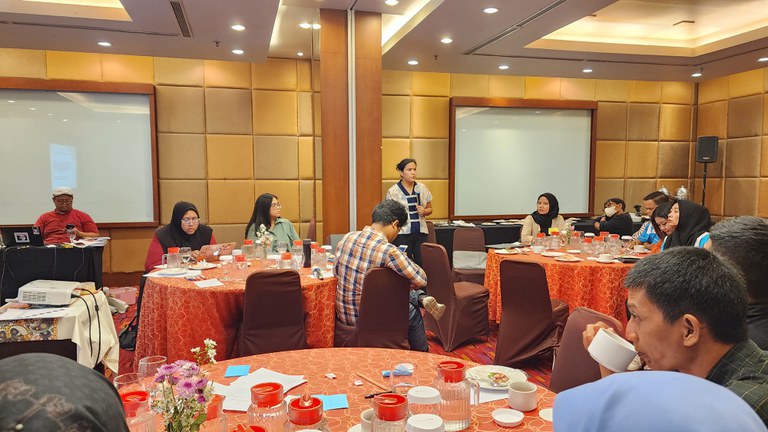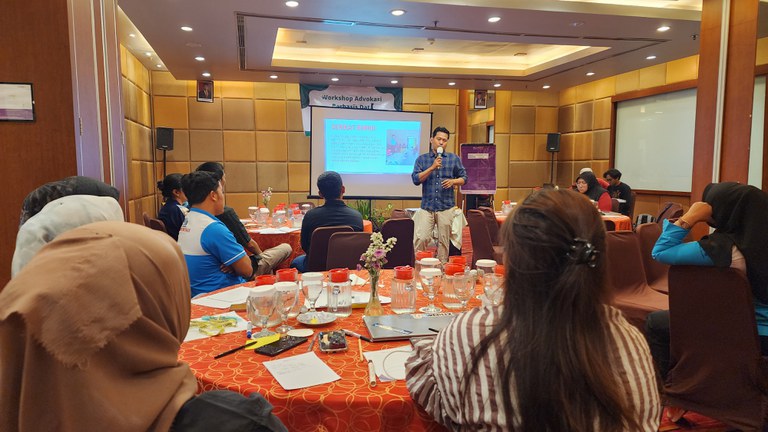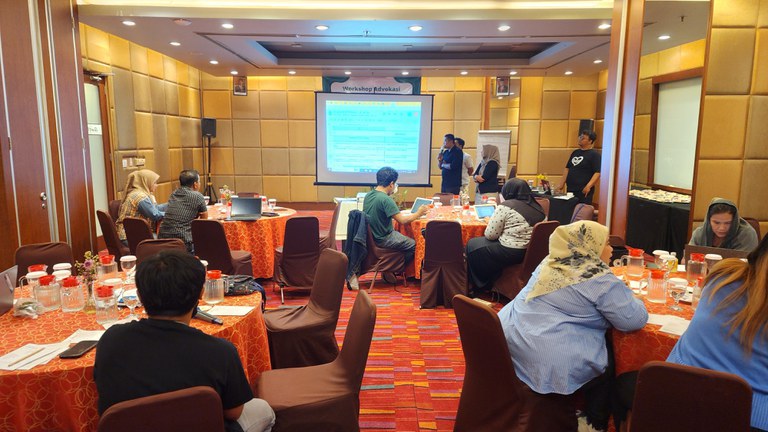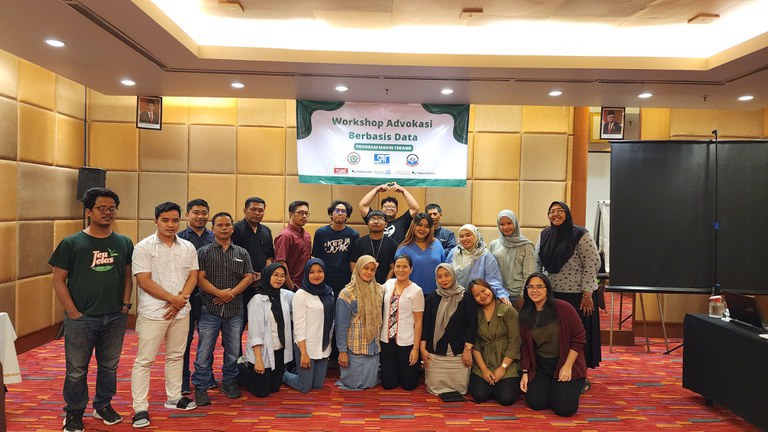From July 12 to 14, 2024, the Data-Driven Advocacy Workshop of the Makin Terang Program for trade unions in Central Java and Yogyakarta took place. This three-day workshop aimed to enhance unions' collective strength and negotiation skills through data. It was attended by representatives from four factories: PT. Adi Satria Abadi – Sleman, PT. IGP Internasional, PT. Parkland World Indonesia – Rembang, and PT. Shoenary Javanesia Inc (SJI) – Temanggung.

Day One: July 12, 2024
The workshop began with Lydia's introduction to the Makin Terang Program from Gajimu. The Makin Terang Program continues the Online Survey Transparency Program (2017-2019) and Data Academy (2020-2022). After the introduction, participants introduced themselves and shared their hopes for the workshop, showing enthusiasm and engaging in constructive interactions. Rifki Zulfikar from TURC then discussed the challenges faced by trade unions in dealing with labor rights violations at the factory level, highlighting the complexity of labor issues and the importance of structured, data-driven advocacy.
This was followed by a session by Kinardi (DPC FSP TSK SPSI D.I Yogyakarta), who explained the concept of a "Genuine Trade Union," which must be formed by, from, and for workers, and be independent, democratic, and responsible, emphasizing solidarity in fighting for workers’ rights. The next session, led by Dela from Gajimu.com and Tuti from LBH Semarang, covered gender-based violence and its impact on the workplace. Participants were encouraged to understand how unequal labor division affects injustices and violations of women’s labor rights.

Day Two: July 13, 2024
On the second day, before the session began, participants reflected on the previous day's training. Adi from PT Park Workland Indonesia and Tri from PT. Adi Satria Abadi shared their insights, especially on gender topics and problem-solving methods using the chessboard technique. The reflection session was followed by Syaukani Ichsan from TURC, who discussed the importance of understanding data and information, teaching participants how to differentiate between qualitative and quantitative data, and collecting data from various sources. Rifki Zulfikar continued with a session on data-driven advocacy, explaining the importance of using data to support advocacy efforts and monitor progress.
Fifi from Gajimu.com then introduced the Gajimu.com and Gajimu.com/Garment websites as key resources for labor law information and data, particularly the Factory Info section, which can strengthen advocacy efforts. Dela also explained how to read the results of the DecentWorkCheck Survey and analyze factory compliance levels, while Lydia highlighted Gajimu's visual data tools that help assess factory compliance visually. Participants were divided into groups by factory to practice analyzing the survey data from their factories. Through discussions guided by facilitators from Gajimu.com and TURC, participants identified priority issues such as freedom of association, wages, working hours, and gender equality, and formulated advocacy plans.

Day Three: July 14, 2024
The final day featured group presentations. Each group presented their advocacy plans based on the survey results.
- Group 1 from PT Adi Satria Abadi, Sleman, represented by Listi, focused on the glove division's plan for PPE provision and clinic services for workers.
- Group 2 from PT Parkland World Indonesia, Rembang, represented by Adi, advocated for the implementation of the minimum wage and menstrual leave without wage cuts.
- Group 3 from PT Shoenary Javanesia Inc, Temanggung, represented by Feri, proposed converting contract workers to permanent positions and providing lighter tasks for pregnant and breastfeeding workers.
- Group 4 from PT IGP Internasional, represented by Safari, addressed layoffs due to prolonged illness and the need for lactation rooms for female workers.
Each presentation was followed by a Q&A session, enriching the discussion with various perspectives. Through group discussions, participants successfully identified various workplace issues. The results showed that despite challenges, concrete and strategic steps could help unions in advocating for their rights. After the presentations, participants took part in a follow-up planning session, a post-test, and the closing ceremony. Facilitators expressed their hope that the workshop and the data collection efforts through the Makin Terang Program would strengthen unions in Indonesia, working towards a fairer and more inclusive labor environment.

Read more:
